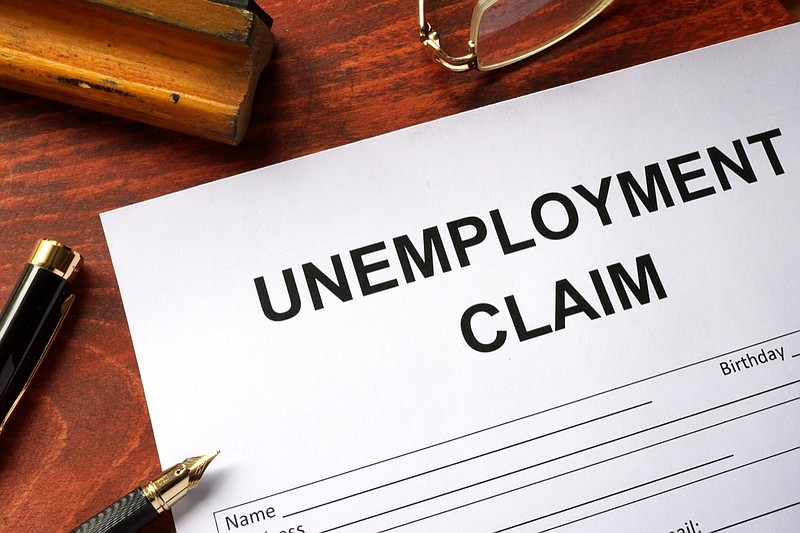Unemployment edged higher last month across Tennessee, pushing the state's jobless rate above the national average even as unemployment benefits paid to many Tennesseans who have lost their jobs due to the COVID-19 virus are about the expire.
The Tennessee Department of Labor and Workforce Development said Thursday that the state's jobless rate rose from 6.5% in September to 7.4% in October. The increase in Tennessee's rate came despite a nationwide drop in the jobless rate to 6.9% and a drop in unemployment in neighboring Georgia to only 4.5%.
"I think over time we will see unemployment go down in Tennessee and much of this increase in October reflects the growth in the labor force, not a decline in jobs," said Bill Fox, director of the Center for Business and Economic Research at the University of Tennessee. "But it's going to take a long time to get back to the employment levels we were at before the pandemic and there may be some bumps along the road."
Tennessee employers added 24,600 jobs from September to October. But over the past year, nonfarm employment in Tennessee was still down by 108,800 jobs and more workers re-entered the labor market in October than the number of new jobs added by employers, pushing up the unemployment rate.
As holiday hiring gears up this month for both online shipping and in-store buying and other holiday activities, Tennessee Career Centers are listing more than 240,000 open jobs in Tennessee. But Fox said some retail and restaurant jobs may have been permanently lost this year as consumers have shifted more of their buying habits to online shopping or drive-through and delivery food services.
Last week, the number of initial jobless claims filed in Tennessee totaled 6,182, including 318 in Hamilton County, which was the lowest number of such claims since March. Continuing claims also fell to an 7-month low in Tennessee.
But such claims are still more than triple what they were before the pandemic when unemployment in Tennessee fell to just over 3%.
Georgia's economy is also not back to the levels prior to the pandemic, but it has rebounded strongly in recent months. Last month, Georgia's jobless rate fell to 4.5%, down from the 6.3% jobless rate in September and a 12.6% unemployment rate back in April at the worst of the downturn in Georgia.
"The fact that we have so quickly reduced our unemployment rate to almost pre-pandemic levels demonstrates how strong our economy was prior to the crisis and how we are successfully recovering economically," Georgia Labor Commissioner Mark Butler said. "We still have a lot of work to do in order for growth to continue, which includes filling the thousands of jobs that we currently have listed on EmployGeorgia."
Butler said more than 162,000 jobs are currently listed on the state's jobs website.
Jobs in October across Georgia increased by 25,000, reaching a total of 4,493,500. That number is still down 136,600 compared to this same time last year.
Extended federal jobless benefits for those still out of a job will end next month and state unemployment insurance programs will pay benefits for only a maximum of six months.
The number of Americans filing initial claims for such unemployment relief after being laid off rose slightly last week from the prior week.
The number of Americans seeking unemployment aid increased to 742,000, the first increase in five weeks and a sign that the resurgent viral outbreak is likely slowing the economy and forcing more companies to cut jobs.
The worsening pandemic and the arrival of cold weather could accelerate layoffs in the weeks ahead. Of the roughly 20 million Americans now receiving some form of unemployment benefits, about half will lose those benefits when two federal programs expire at the end of the year.
"The risk of further job and income loss is high now from business operations being curtailed," said Rubeela Farooqi, chief U.S. economist at High Frequency Economics, a forecasting firm. "Also, expiration of federal benefits later this year will put renewed strain on household incomes. Overall, the labor market remains under stress."
The Associated Press contributed to this report.
Contact Dave Flessner at dflessner@timesfreepress.com or at 423-757-6340.
